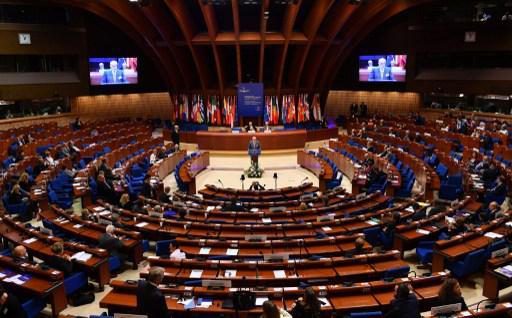The Council of Europe on Monday renewed its call for Turkey to release Osman Kavala, a critic of President Recep Tayyip Erdoğan who has been jailed for over four years, Agence France-Presse reported.
The call came as the European Court of Human Rights (ECtHR) ruled that Turkey violated Kavala’s rights in 2020 when, already jailed for his alleged support for anti-government protests, he was freed but then re-arrested the same day on charges of seeking to topple the government.
A Turkish court in April sentenced him to life in prison, sparking protests from governments around the world, including the United States, Germany and France, and NGOs such as Amnesty International.
The panel of three judges also jailed seven other defendants for 18 years each on the charge of aiding the attempt to overthrow then-prime minister Erdoğan’s government during large-scale protests in 2013.
Paris-born philanthropist Kavala told the court by video link from a high-security prison near İstanbul that he viewed the entire process as a “judicial assassination.”
In its statement Monday, the ECtHR said Turkey had failed to comply with its earlier ruling to free Kavala.
“We renew our call for Mr Kavala’s immediate release,” said the Council of Europe, which has already launched a rare disciplinary procedure against Turkey over its treatment of Kavala.
Kavala was one of tens of thousands of Turks who were either jailed or fired from their jobs in purges that followed a bloody coup attempt against Erdoğan when he was already president in 2016.
But the seemingly arbitrary nature of the alternating charges filed against Kavala made him a symbol of Erdoğan’s increasing authoritarian streak.
Kavala was first charged with funding the wave of 2013 protests.
A court acquitted and released him in February 2020 — only for the police to arrest him before he had a chance to return home to his wife.
Another court then accused him of being involved in the failed 2016 putsch.
Kavala ultimately ended up facing both sets of charges, which the ECtHR rejected as unproven.
“In the absence of facts, information or evidence showing that he had been involved in criminal activity,” it said, Kavala “could not reasonably be suspected of having committed the offense of attempting to overthrow the government”.
In fact, it said, there was “no plausible reason” to suspect that Kavala had committed any criminal offense at all.

